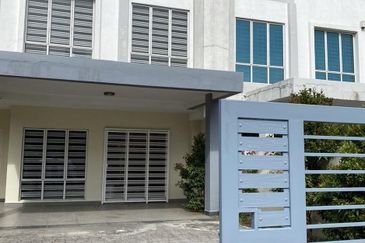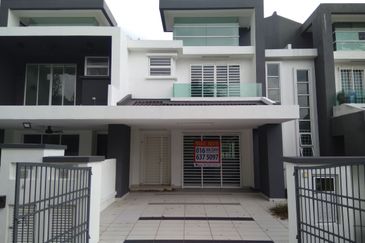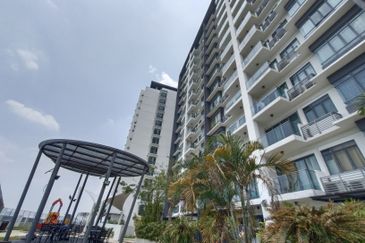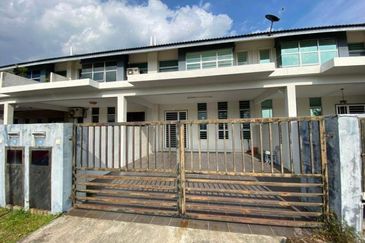THE relisting of power player Malakoff Corp Bhd will see some pressure lifted off its parent MMC Corp Bhd, the flagship of Tan Sri Syed Mokhtar Al-Bukhary, which had consolidated borrowings of more than RM21.76 billion as at Sept 30.
With a lighter balance sheet, analysts say MMC could gain more flexibility by redeploying its capital to other businesses within the group that aren't doing so well, such as Senai Airport, among others.
At its initial public offering, new and existing shares equivalent to about 30% of Malakoff's enlarged share capital will be sold to raise an estimated US$1 billion (RM3.05 billion). Two-thirds of the proceeds will go to Malakoff while the rest will be channelled to the promoters, chiefly MMC and the Employees Provident Fund (EPF), which are also offering some shares to the market.
While MMC itself may only raise RM300 million from the IPO, by offering only 3% of the enlarged stake in Malakoff, the group will see its balance sheet deconsolidate from Malakoff's hefty borrowings of about RM12 billion. That's because its current 51% stake in Malakoff will be diluted to 37.8%, making the latter an associate company instead of a subsidiary. MMC's gearing is currently about 1.5 times.
A construction company with a net gearing ratio of one would typically be considered stressed. But while its gearing is high, MMC has ring-fenced most of its borrowings to its infrastructure concessions, which generate very stable income. Therefore, there is relatively little risk of default, notes an analyst.
Post-IPO, he says, MMC's net gearing will probably come down to less than one. "This would free up the group's balance sheet and allow it to move capital to some of its other assets that aren't doing so well. From what I understand, Senai Airport, which was acquired by the group in 2009, has not been doing too well and could use a little capital."
MMC's debts, as well as those of Syed Mokhtar's other companies, often come under the spotlight whenever there is a discussion about the tycoon, who is often described as one of the country's largest private borrowers, and how he has built a business empire funded with billions of ringgit in loans from local banks.
Over the past year, Syed Mokhtar has acquired a stake in Pos Malaysia Bhd. This was followed by the privatisation of national car maker Proton Holdings Bhd. Meanwhile, it has been reported that he is looking to take over the national railway company and Selangor's water assets.
It is worth noting that his three main listed vehicles - DRB-Hicom Bhd, MMC and Tradewinds Corp Bhd - have more than RM31.9 billion in borrowings between them. After factoring in their cash holdings, the net borrowings still stand at RM22.16 billion. MMC's borrowings alone account for about 61.7% of the amount.
RAM Rating Services Bhd (RAM Ratings) in September placed a negative outlook on Malakoff's RM6.2 billion worth of short-term and long-term bonds. According to the rating agency, Malakoff had RM10.51 billion in borrowings and a gearing ratio of 1.91 times as at Dec 31, 2011.
However, analysts estimate that MMC's group borrowings would have risen to about RM12 billion with the inclusion of the Tanjung Bin power assets.
Malakoff should have no trouble servicing its debt. The first generation of independent power producer (IPP) agreements that Malakoff has with its power assets have a very good internal rate of return (IRR). On top of that, Malakoff's borrowings are ring-fenced to the corresponding power assets, which are very stable, notes an analyst.
Malakoff boasts an effective power generation capacity of about 5,020mw, representing 22.5% of Peninsular Malaysia's total installed capacity. Among the IPPs, Malakoff has the largest effective generation capacity installed in Southeast Asia.
The group is also involved in independent water production and power generation in the Middle East and North Africa, with an effective water production capacity of 358,550 cu m of water per day and power generation capacity of 480mw.
According to MMC's announcement last week, Malakoff will undergo several pre-IPO exercises that will see its share capital expand to two billion shares. The IPO itself will involve 760.9 million shares, or 30.4% of the enlarged share capital, of which only 500 million will be newly issued shares.
Assuming Malakoff does not utilise the proceeds to pare down debt, it could potentially undertake a new power project of up to RM5 billion with 70:30 gearing, notes the analyst.
The problem is that the new generation of IPPs are not as lucrative. They are estimated to give only single digit IRR. Therefore, Malakoff's next round of expansion could be a little more challenging.
Thus, Malakoff would be a pure dividend play for investors, he adds.
The remaining 260.9 million shares that will go on offer will be shares offered for sale by the various shareholders of the group.
Besides MMC, Malakoff is 30% held by the EPF and 10% by Kumpulan Wang Persaraan (KWAP). SEASAF Power Sdn Bhd and Standard Chartered IL&FS Asia Infrastructure Growth Fund Company Pte Ltd (SCI Asia) have a 2.5% and 6.5% stake respectively in Malakoff.
MMC's share price has remained flat at RM2.70 since the announcement of Malakoff's IPO. Looking ahead, analysts say the group's share price may be tested again as the general election draws near.
It is very possible that rate hikes for MMC's infrastructure concessions, such as the SMART tunnel, will have to be postponed until after the election, the analyst says.
This story first appeared in The Edge weekly edition of Dec 17-23, 2012.
TOP PICKS BY EDGEPROP

Suria Residence by Sunsuria
Bukit Jelutong, Selangor

Taman Perusahaan Sungai Lokan
Bagan Lalang, Penang

Springfield Residences @ Setia EcoHill 2
Semenyih, Selangor






















